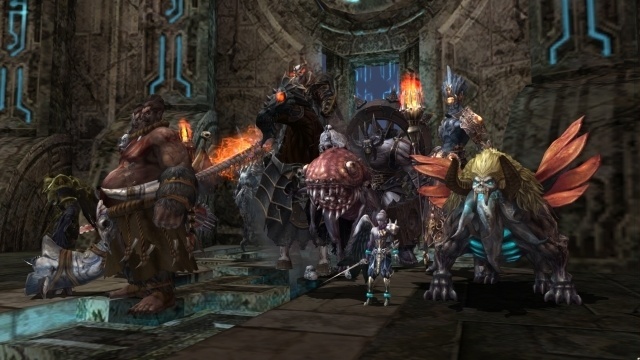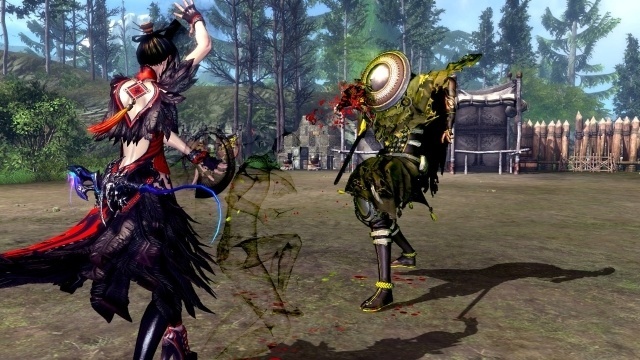Not everyone is a fit for the same group.
At the best of times, people self-select for these things. I know right off of the bat that a guild advertising itself as “420 Soldiers of Cheech” is not going to be a good fit for me. Hardcore progression is not my thing at this point in my life (I did that in the past, this is now). There are certain cultural markers in guilds that tell you right off of the bat that it’s going to be a bad fit. I don’t ask to be a part of those guilds, and if I find that I’ve accidentally signed on to one such group, I politely excuse myself.
Not everyone does that. Heck, not everyone knows to do that. And sometimes you’re running a polite, happy community guild with an emphasis on family play when someone who would be a terrible fit for your group places in an application.
Maybe they have a friend in the group, maybe they’ve played with you and like your style, maybe they thought your name was a joke when it wasn’t. Maybe lots of things.
The point is that you probably should say no. But you also don’t want to be a jerk about it. You want to say no in a constructive manner. And that’s what we’re talking about today

When to say NO
If there’s a running theme to these columns – and there are, in fact, several running themes – it’s that you should really think about your decisions and their ramifications. Because just recruiting people who march in lockstep with the existing group isn’t a good survival strategy. One change can wipe you all out.
That isn’t to say that you should let everyone in, though; it’s to say that you need to think about why you’re saying no. And the keyword here is to figure out whether or not someone is divergent from your usual player base or outright opposed to it.
Let’s say you have a guild in EVE Online focused very heavily upon market management, reselling, and carefully playing monetary games. A player who is really interested in gathering and selling materials isn’t exactly in the same area, but it actually adds on to what you’re already doing. Your group is focused on the markets; this gives you a useful primary source. This decision could be encouraging to other members who want to get in on harvesting or want to defend harvesters. Focus-wise, it’s a close fit.
On the other hand, an applicant whose only goal is to fly in and destroy enemy ships isn’t at all connected with your existing goals. They want something you don’t. Yes, there’s the tenuous connection of some somewhat PvP-focused elements, but it’s the loosest possible correlation between elements. This person is going to directly weaken your group’s enjoyment of the game. “No” is the reasonable thing to say.
It’s obviously possible to start splintering off further and wind up with a header that’s too broad to be useful, but that’s more about maintaining a core guild identity. Put simply, you don’t want to take people in whose goals are going to be at odds with your own.
And that’s not counting applicants who are just rude and unpleasant from the start.

It’s not you, it’s us – finding ways to be honest and polite
Aside from the fact that no one likes being a jerk, the biggest reason that you don’t want to be a jerk to applicants you turn down is because that gives you a reputation. In theory, you want more people to apply in the future. If you turn down every applicant by mocking their application and the concept that you would let them in, you kind of get a reputation for being a group of jerks. Which is fine if you want to be remembered as a bunch of jerks, but…
Let’s just make it clear: you should not want to be remembered as a bunch of jerks.
So, the first thing to do in this situation is to manage your message, which means that you make it clear that you’re not turning down the applicant because they did something wrong. This is going to be a case of a mismatch, and you’re calling it now. You would all be miserable.
Ironically, this is a place where progression groups have a very easy way out but also frequently sort of flubbing things. Far too often, I see progression guilds reject someone because, say, their gear isn’t up to snuff. That just prompts more discussion, with the applicant insisting that they can get more gear, and that’s fine, that’s not enough reason to say no!
A better option would be to explain to the applicant that the progression group isn’t willing to take the time that the applicant would need to get that better gear. The raid group isn’t willing to do older content and/or carry said applicant through the early fights, and they’re not willing to teach the new player how to handle the fights along the way. It’s not a question of whether or not they could get good enough, it’s a question of whether or not the rest of the group is willing to bring them up to that point – and in this case, the answer is “not really.”
When someone’s personality is what makes them a poor fit, of course, it’s a little harder to mark this, but it’s still worth explaining in total rather than just handing down a flat rejection. Stating, for example, that your guild has a very strong family focus with kids and parents who wouldn’t welcome someone with a certain demeanor goes a long way. The goal here is to let the applicant know that they don’t really want this – no one wants to be in a guild where they’re not wanted.

Maybe it’s a little bit you – and that’s not the end of the world
Sometimes, of course, you want to be gentler in your rejection. Take the progression example above – someone who isn’t interested in progression is going to be a poor fit for your guild. But someone who is interested and just isn’t there yet might be a good fit; you just don’t have a group willing to help them along right now.
Obviously, in that situation the first thing to do is poll around the guild and make sure. Assuming that it holds true, however, your obvious tool is to tell the applicant what they can do. “Improve your gear and learn the fights a bit, and we’re happy to give you a shot” can be all of the motivation someone needs to put forth a genuine effort.
Sometimes what makes someone a poor fit is a temporary or changeable thing, and you want to leave an applicant the opportunity to change. That doesn’t mean that they will, and it doesn’t even mean that they want to. Perhaps the person almost good enough to be in on progression isn’t that interested after all. But if they feel like they have the option, even if they choose not to take it, they know that they weren’t rejected outright. They had a choice, and they made it.
And that means that when they talk about you in the future, they’re going to talk about you as a guild that they weren’t in, but seemed like a good group. A group focused on getting things right. And isn’t that the reputation you want, even when you have to say no?
Enjoy the Guild Guide column? Keep up to date with our new Twitter account @GuildGuide!







Published: Dec 11, 2015 08:43 am